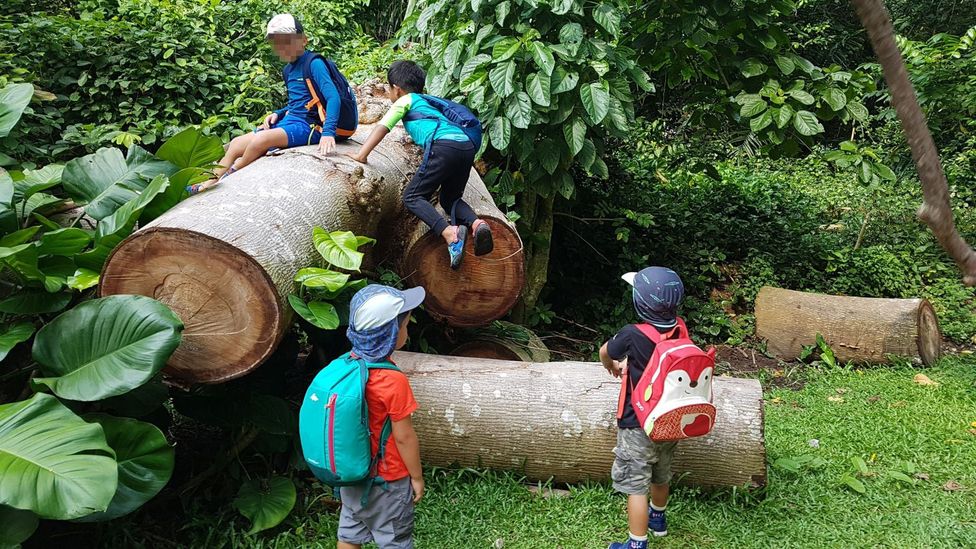So… I’ll first start by clarifying that writing blogs is unfamiliar territory to me and like Matt I would probably be considered a blog virgin. I’ll also clarify I’m not a flat earther or an ‘earthy’ person in general, in fact, I’m quite the opposite. When I heard the term Forest School back in my first year at University, I initially thought of children with hippie-like parents singing around a fire and hugging trees. Luckily as I progressed through my degree my take on Forest schools had completely changed and here’s why…
Growing up in the midst of East London (beloved, Dagenham) open land, trees and fresh air wasn’t part of my everyday life. Instead, I walked to school inhaling the aroma of chicken shops and passing aggressive one-legged Pidgeon’s. Now I don’t think this has done any harm to me, I like to think I am a well-rounded (charming, funny, smart…) human. However, after learning about Forest Schools, I can’t help but think of the positive impact this would have had on my education and understanding of the world.
Forest School learning is an alternative method of education, the key principle is using outdoor space and natural environments to encourage holistic development and broaden children’s knowledge by experiencing and understanding the world on a first-hand basis as opposed to being taught about it within an ordinary classroom setting. Activities consist of fire lighting, tool use, arts and crafts, den building outdoor cooking and local environmental knowledge such as leaf or bug hunts. Worlds away from my own school experience with the most outdoor space being a small cricket field shared with 500 students. Now this is not to say I haven’t received a good quality education, I have fantastic memories of my friends and i finding a homeless gentleman in our pe equipment shed, but I must admit my understanding of the world and nature was extremely limited.
As great as being within nature is, a core value of Forest schools is adopting positive attitudes and giving pupils a variety to their education and the chance to explore their learning styles. Students can see and understand the world in person benefiting their holistic development and approach towards their schooling which can only be a good thing! This type of learning also draws on key concepts such as Afrocentrism as it expands the curriculum and includes the valid work and achievements of all societies. Diversity within education is a core value to being inclusive; broadening the curriculum allows children to resonate and appreciate the information they’re receiving. As well as giving children diversity in their learning the environment Forest School's allows students to take make social and emotional risks under adult provision within a setting that is balanced with risk and education.
Ofsted's (2008) findings state learning outside the classroom contributed significantly to raising standards and improving pupils’ personal, social, and emotional development, importance was also put on schools planning sufficient well-structured opportunities for all learners to engage in education outside of a standard classroom environment. There is also evidence that learning in natural environments is associated with the accumulation of social capital and with fostering pride, belonging and involvement in the community.
So, after taking that in I’ve grown to realise Forest Schools really are an integral part of holistic development and I think all children should have the opportunity to engage with outdoor learning whether you’re from Tim buck too or beloved Dagenham.









